The Government hate speech bill, which was debated in the Seanad this week, has been variously described as "landmark legislation", "flawed", "ambiguous," "an attack on freedom of expression," and "nonsensical word salad".
Civic society groups have long called for a law in this area, but concerns about the current bill span traditional party divides with government colleagues pressing the Minister for Justice to introduce extensive changes before they will support it.
This week members of the upper house from all parties and none said they had never received so much correspondence from people across the board on a single issue.
Independent Senator Tom Clonan described a "wall of concern" being raised with him.
"This is the largest volume of correspondence I have received from a huge swathe of people in Irish society," he said.
"They are not keyboard warriors."
While Independent Senator Gerard Craughwell said: "No matter how much I would like to try, I cannot define all of those who have contacted me as being from lunatic right-wing organisations.
"There are decent people contacting us every day who have huge concerns about this bill."

Why do we need a hate speech law?
Irelands existing hate speech law dates back to 1989, a pre-internet era, long before the advent of social media.
Minister for Justice Helen McEntee said that in 35 years there have been only around 50 convictions under the law, many of which were successfully appealed making it "ineffective, limited and largely discredited".
Figures from An Garda Síochána show hate crime is on the rise.
The most prevalent discriminatory motive was race, which accounted for a third of reported incidents (32%), followed by sexual orientation (22%) and nationality (21%).
The Government's Criminal Justice (Incitement to violence or hatred and hate offences) Bill 2022 aims to tackle the inadequacies in the law by tackling both incitement to hatred and hate speech.
Read more: Why is the Government reforming hate speech laws?
What is in the bill?
The proposals criminalise communication or behaviour that is likely to incite violence or hatred against a group or individual because they are associated with a protected characteristic.
It says those characteristics are "race, colour, nationality, religion, national or ethnic origin, descent, gender, sex characteristics, sexual orientation and disability".
A penalty for an offence will be up to five years' imprisonment.
The legislation was passed in the Dáil by an overwhelming majority, and it is now being considered by the Seanad.
This week members of the upper house from across the political divide raised issues with the bill.
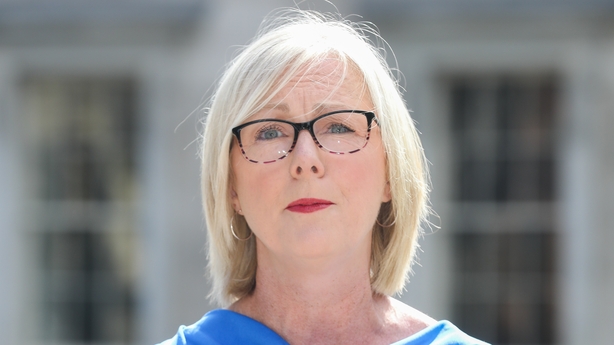
'Ambiguous'
A number of Senators expressed concern that the bill does not contain a legal definition on what constitutes "hate".
Fine Gael Senator Regina Doherty said: "This Bill is full of ambiguity.
"According to the United Nations High Commissioner for Refugees, we should have a definition of hatred in order that everybody is clear where the line is."
Sinn Féin Senator Paul Gavan told the house there is a need for more robust legislation.
"Laws have been weaponised in other jurisdictions and the lack of detailed definitions of hate and protections for freedom of expression are a genuine concern," he said.
Minister McEntee said that "on the strong advice of the Office of the Attorney General, we have not sought to limit the definition of the widely understood concept of 'hatred' beyond its ordinary and everyday meaning.
"It is the definition which has been used by the courts, the gardaí and the Director of Public Prosecutions.
"I am advised that defining it further at this juncture could risk prosecutions collapsing and victims being denied justice."
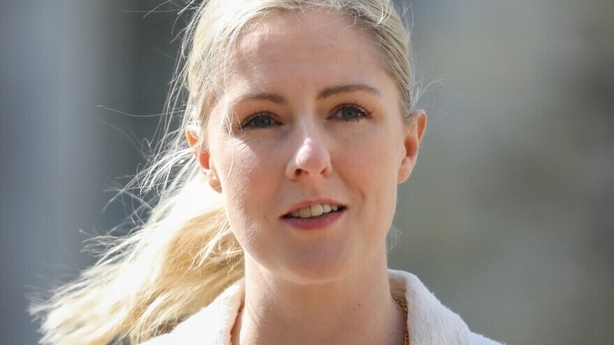
Freedom of Expression
In the absence of a definition of hate a number of Senators said they are worried the bill could limit freedom of expression and this could impact on the ability to campaign and advocate on issues, as well as on journalism and the creative arts.
Leader of the Seanad Fianna Fáil Senator Lisa Chambers described this as a potential "chill effect".
She said she was contacted by a number of groups who campaigned for progressive change in Ireland, including the group Not All Gays.
"As they have said to me, if those restrictions were in place would I have been able to advocate and change the minds of people who had a different view from me and bring about the change that means I have better protections today?," Senator Chambers said.
Former justice minister and former Attorney General Michael McDowell said the Bill is "not in good shape" and needs to be amended.
He added "it can be a charter for freezing genuine free speech and prevent people from articulating unpopular views".
Minister McEntee insists this is not the case. She said people still have the right to offend.
"Free speech will remain a cornerstone of our democracy," Minister McEntee said.
"It is enshrined in our constitution. It is only the extreme forms of speech that deliberately and recklessly incite acts of hostility or violence and cause harm to persons with a protected characteristic that will be criminalised."
Read more: Gender expression protected under new hate crime legislation
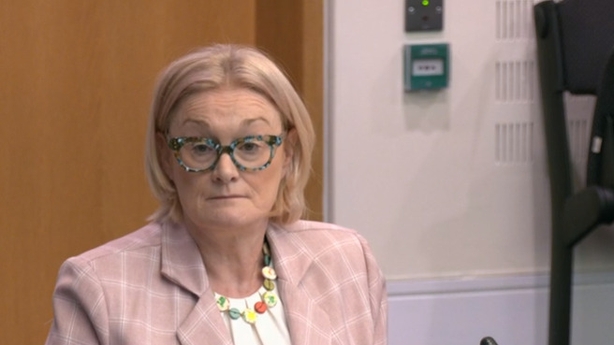
Gender
Independent Senator Sharon Keogan described the definition of gender in the bill as a "nonsensical word salad".
She said the "premise of the Bill is that some persons are worthy of protections and others are not, hence the exclusive list of protected characteristics".
In her contribution to the Seanad, she said the bill represents another attempt by the Government to "micromanage the day-to-day experiences of ordinary people, deciding what cars they are allowed to drive, what drinks they are allowed to buy, what fuels they are allowed to use, what their children learn in school and now what ideas and opinions are allowed to be shared or what beliefs may be held or expressed in private".
Writing in The Irish Times this week, Senator McDowell sounded a warning note on the definition of gender in the Bill.
Along with including people who identify as male, female and transgender he said it includes "an open-ended undefined category of "a gender other than those of male or female".
"No clarity has been given to these new and extended meanings of gender," he wrote.
In the article he suggests this represents a huge shift in public policy.
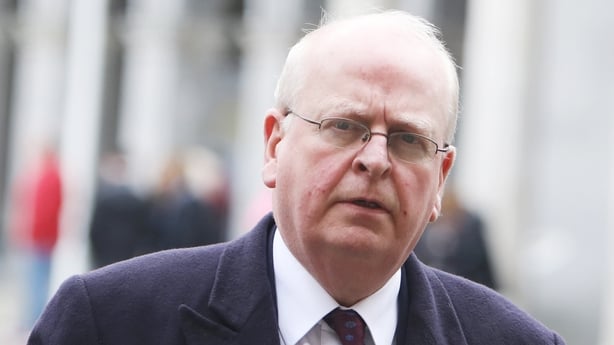
"It seems that the Oireachtas is being asked as part of a transgender policy for the very first time to completely divorce gender from sex as concepts," Senator McDowell wrote.
"That involves profound political, social and educational consequences."
The definitions of gender in the bill are based on recommendations from civil society organisations.
Minister McEntee said this is in line with international good practice.
"The definition only applies within this legislation and would have no bearing outside of it," she said.
"This is for the purposes of what we are intending to do here, which is to protect people from hate speech and hate crimes."
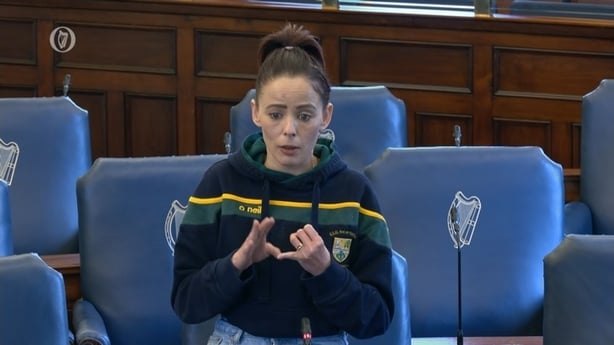
'Remarkable day'
The bill has now progressed to the next stage in the Seanad and members will now be able to put forward amendments.
Senator Eileen Flynn has been campaigning for hate speech legislation since 2015.
She described the passage of the bill as a "remarkable day".
Senator Flynn, who is a member of the Traveller Community, said: "While it won’t change behavior towards the Traveller Community or towards other minority groups it does show that they will be protected against hate."
Dr Seamus Taylor, Head of Social Studies in Maynooth University, has also campaigned for this law change.
He describes it as a "landmark bill".
"We are laggards in Europe on this issue and politicians need to get on with it and get this in our statute books now," Dr Taylor said.







